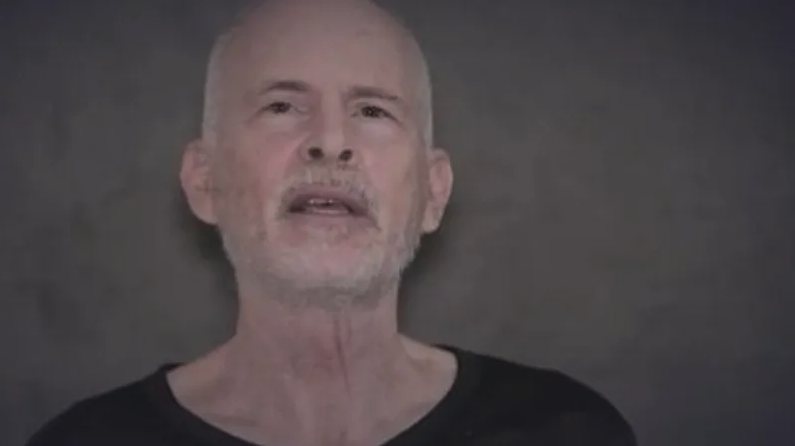Former Cabinet minister and Swapo lawmaker Jerry Ekandjo will introduce a private member bill in parliament to define the word spouse in the Immigration Control Act.
This comes after home affairs executive secretary Ettiene Maritz last week said the ministry will abide by a Supreme Court judgement recognising same-sex marriages formalised outside the country.
In a notice in parliament yesterday, Ekandjo said the private member bill seeks to define the term spouse, invoking article 81 and 45 of the Constitution to contradict a decision of the Supreme Court and assert the representative nature of the National Assembly.
In addition, Ekandjo will also introduce a private member bill to amend the Marriage Act of 1961.
This will define the terms marriage, same-sex marriage and spouse.
Ekandjo noted that this is “to prohibit same-sex marriage, solemnisation of same-sex marriage and the recognition of same-sex marriage in Namibia and to provide for incidental matters”.
Rule 32 clause (ii) of sub-rule (e) empowers members of the National Assembly to submit private members’ bills.
Ekandjo has been on the warpath since the Supreme Court’s ruling on same-sex marriage recently.
On 16 May, the Supreme Court ruled against the ministry of home affairs’ refusal to recognise spouses in same-sex marriages validly concluded outside Namibia for immigration purposes in terms of section 2(1)(c) of the Immigration Control Act of 1993.
The court found that the ministry’s stance infringed on those foreign nationals’ rights to dignity and equality under Namibian law.
Following the court ruling, Ekandjo introduced a motion in parliament rejecting the ruling, claiming he did not go to prison on Robben Island to promote homosexuality in Namibia.
Ekandjo’s decision came after Swapo secretary general Sophia Shaningwa asked Kawana last week why he did not table amendments, as per the ruling party’s central committee decision.
According to Shaningwa, Kawana was supposed to table the amendments to the Immigration Control Act on 20 June.
“Can the minister assure the house and population out there that a motion to amend the law will be tabled in this august house before the end of this current sitting?” Shaningwa asked Kawana.
Last week, Shaningwa cautioned Kawana that failing to introduce the amendment will result in the introduction of a private member’s bill, in accordance with rule 32.
The current session of the National Assembly is scheduled to conclude next Friday. And parliament will be in recess until September.
Kawana is expected to respond to Shaningwa’s questions today.
Shaningwa and Ekandjo are in agreement with the decision taken by the ruling party last month, directing the government to amend the Immigration Control Act to include a definition of the term “spouse”, in accordance with Namibian laws on marriage and family.
The Society of Advocates last week defended the Supreme Court from public criticism over its judgement.
“The characterisation of the judgement as unconstitutional and calling for the judgement to be overruled when the Supreme Court has the ultimate authority to interpret the Namibian Constitution, is not only an attack on the judiciary, but also a serious challenge to the supremacy of the Namibian Constitution, the rule of law, and the separation of powers within our constitutional democracy,” the society said in a statement.
Political analyst Ndumba Kamwanyah said amending the Marriage Act is not going to put food on the plates of many Namibians and seems like a misplaced sense of urgency.
“How’s that going to solve Namibia’s multidimensional poverty and the skyrocketing unemployment rate? How’s it going to address rampart corruption in the country, to which his party Swapo is a vivid author?” he asked.
Kamwanyah said Ekandjo and Swapo are misplacing their energies and effort on a non-issue.
“Give me evidence of a country that was destroyed by same-sex marriage. The irony here is countries that allow same-sex marriage are actually doing far better than Namibia. I think this tabling is a diversion tactic by Swapo to conceal the party’s failure of 33 years,” he said.
Chairperson of Christian Coalition of Churches in Namibia Shirley Magazi applauded Ekandjo’s move and blamed the president for failing the nation.
Magazi said the executive owes the Namibian people (through its representatives) an explanation for failing to initiate a bill that prohibits same-sex partnerships as marriages in Namibia and clarifies the term spouse to mean marriage between a man and a woman.
“We have noted with interest the argument advanced in favour of implementation of the ruling based on the common law presumption that laws are not intended to have retrospective effect.
“The reference to this common law principle is apparently directed at effect [sic] of the anticipated law, which clarifies the meaning of marriage as between a man and a woman; holding the view that such law would not have the effect of overriding the court’s ruling,” she said.
Magazi said the argument is flawed in that the court did not amend the existing law, but rather provided an interpretation which contradicts the Namibian Constitution and intention of the legislature, and more so public policy.
“The clarification of the intention is, therefore, not new legislation, in which case, the common law principle is not applicable.
The coalition wishes to underscore the position of the church and the Namibian people, which both the government and Swapo have confirmed that the Namibian Constitution, laws and jurisprudence have never recognised a same-sex partnership as marriage for any intent and purpose.
Therefore, the home affairs ministry has no obligation to abide by the ruling which contradicts Namibian constitutional and legal frameworks,” she said.
Stay informed with The Namibian – your source for credible journalism. Get in-depth reporting and opinions for
only N$85 a month. Invest in journalism, invest in democracy –
Subscribe Now!






